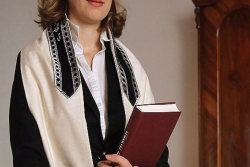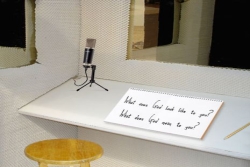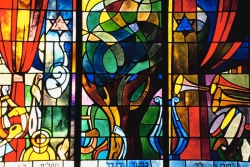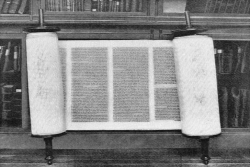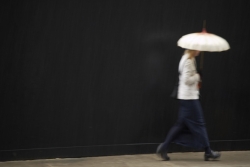Yom Kippur Worship Services: Haftarah Blessings
The blessing after the reading of haftarah always sanctifies the day on which it is read. Throughout most of the year, that day is Shabbat, but haftarah is also read on the High Holidays.
Galilee Diary: Uncertainty
by Marc Rosenstein
(Originally published in Galilee Diary and Ten Minutes of Torah)
Galilee Diary: On the Waterfront
Shabbat Shuvah: From Whom Have You Strayed?
Shabbat Shuvah is the Sabbath between Rosh HaShanah and Yom Kippur. The name is derived from the opening word of the haftarah reading that urges us: Shuvah Yisrael ad Adonai Elohecha, “Return, O Israel, to the Eternal your God.”
Understanding Yom Kippur - Then and Now
Yom Kippur, the Day of Atonement, is a concept I came to understand in my early adult years. But this was my understanding during my childhood:
When Soul and Sole Come Together
by Rabbi Elisa F. Koppel I’m not ashamed to admit it: I like shoes. I’m not quite obsessive about them, but I probably have more pairs of shoes than I need, and I’m always finding new ones – you know, the ones that would be perfect with that one outfit.
Why Are Services on the High Holy Days Different from the Rest of the Year?
When I started a new chapter in my life as a freshman at Indiana University (Go Hoosiers!), I met people left and right.
Yamim Noraim: What Are the Awesome Aspects of the "Days of Awe"?
As Jews, we approach every autumn with the understanding that a new year is starting and that the High Holy Days are up and coming. In between Rosh HaShanah and Yom Kippur, we observe the Days of Awe, or the Yamim Noraim.
Turn: A Poem for the High Holy Days
Turn the Torah scroll.
Turn back to Genesis
for the Rosh Hashana reading.
As the Torah scroll is rolled,
one person is on one side
pulling forward -
back to the beginning.
One person is on the other side
releasing the past.
Yom Kippur and Depression
It happens that this year the Days of Awe align with Suicide Prevention Week.
